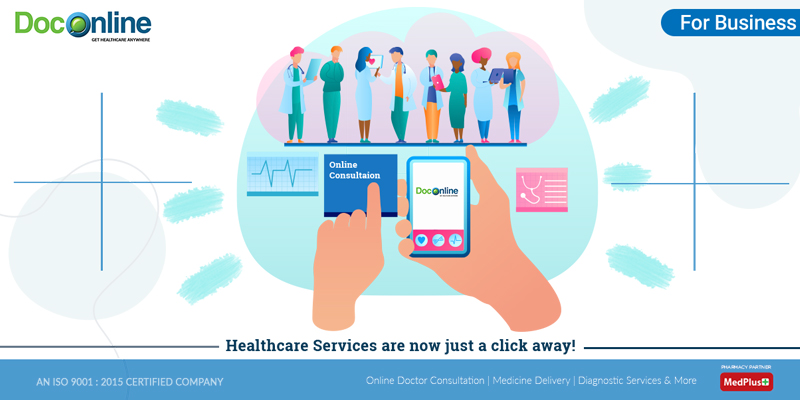A Comprehensive Guide to Subscription Based Healthcare: What You Need to Know
A Comprehensive Guide to Subscription Based Healthcare: What You Need to Know
Blog Article
Navigating the Future of Medicine With Subscription-Based Health Care Solutions
As the health care industry evolves, subscription-based solutions emerge as a pivotal design promising to reshape person care distribution. With the potential to offer streamlined, cost-effective services via foreseeable rates and customized interest, these services stand at the leading edge of modern-day clinical innovation. Yet, as we consider their increase, one should consider the effects of integrating such systems into existing healthcare frameworks. What obstacles do they pose in terms of information security and fair gain access to, and exactly how might they redefine the patient-provider partnership? The response to these questions can essentially modify our technique to healthcare.
Increase of Subscription Healthcare
As health care systems worldwide face boosting pressures from climbing prices and demand for solutions, the introduction of subscription-based health care models has become a transformative pattern. This ingenious technique is interfering with conventional medical care shipment by using a foreseeable, flat-rate settlement structure for clinical services. Rooted in the principles of concierge medicine, subscription-based healthcare enables service providers to concentrate on personalized patient care while concurrently taking care of functional performances.
The raising customer demand for transparency and predictability in healthcare costs has actually driven the shift towards this design. Subscription-based solutions commonly provide direct accessibility to healthcare professionals, which can reduce the management concerns associated with insurance cases and reimbursements.
This version is obtaining traction amongst diverse health care providers, from health care doctors to specialized clinics, by aligning financial motivations with precautionary and continuous care. By moving the focus from quantity to value-based treatment, registration healthcare has the prospective to improve the landscape, cultivating an extra patient-centered and sustainable strategy to health administration.
Benefits for People

Additionally, subscription-based services typically stress preventive treatment, urging routine examinations and health and wellness testings. This aggressive method can result in very early discovery of health concerns, potentially improving end results and lowering long-lasting healthcare expenses for individuals. Additionally, such models normally use clear prices, allowing clients to better recognize their healthcare expenses and stay clear of unexpected medical bills.
The customized nature of subscription-based healthcare likewise improves client experience. Patients can get tailored healthcare strategies that fit their details needs, fostering a more patient-centric strategy.
Modern technology's Role in Improvement

Man-made knowledge (AI) plays an important role in anticipating analytics, assisting in early medical diagnosis and tailored therapy strategies. AI algorithms analyze substantial datasets to determine patterns that could be forgotten by human monitoring, thus enhancing clinical decision-making. Digital health and wellness documents (EHRs) streamline patient details monitoring, making sure continuity and comprehensibility of treatment throughout various services and carriers.
Blockchain innovation improves information safety and security and personal privacy, crucial for maintaining click now patient trust in electronic systems. It makes it possible for transparent and protected deals of medical data, making sure that sensitive details stays secured. With the integration of equipment discovering and AI, blockchain can automate complicated healthcare processes, lowering management worries.
Challenges and Considerations
While innovation drives the capacities of subscription-based medical care solutions, it also presents a collection of challenges and factors to consider that must be resolved to make certain effective implementation. One considerable challenge is the fair access of these solutions.
Information personal privacy and safety and security represent one more essential consideration. Subscription-based solutions often entail the collection and storage space of substantial quantities of individual health info. Suppliers must follow stringent information defense policies to preserve person count on and avoid unauthorized accessibility, which might lead to significant ethical and legal effects.
Moreover, the sustainability of membership versions presents a difficulty. As healthcare requires advance, keeping a cost-efficient balance between registration costs and service quality is crucial to avoid individual dissatisfaction and attrition. In addition, integrating these solutions within traditional health care systems calls for seamless interoperability in between platforms, which is often a complicated and resource-intensive endeavor. Dealing with these difficulties is necessary as subscription-based healthcare solutions continue to progress and increase.
Future Implications for Medication
Subscription-based medical care services are poised to significantly influence Visit Website the future landscape of medication by reshaping just how treatment is accessed and delivered. These designs supply the potential to democratize medical care access, providing individuals with even more customized and timely treatments. By leveraging modern technology, such as telemedicine and information analytics, registration solutions can assist in continuous tracking and customized health administration, therefore boosting outcomes and decreasing the concern on typical healthcare systems.
As these solutions gain more information traction, they could promote a change in the direction of preventative treatment, stressing the relevance of early detection and administration of chronic conditions. This proactive approach might ultimately reduce medical care prices by alleviating the demand for expensive treatments arising from late-stage disease management. Registration designs supply a scalable service to deal with variations in medical care access, specifically in country or underserved populaces.
Nevertheless, the transition towards subscription-based designs demands addressing ethical and governing considerations, including data privacy and equitable gain access to. As the sector advances, collaborative initiatives between policymakers, technology developers, and medical care providers will certainly be vital to developing durable structures that safeguard person interests while promoting innovation. Ultimately, these services promise to contribute substantially to a much more reliable, patient-centered health care environment.

Verdict
Subscription-based health care services stand for a considerable advancement in the clinical area, providing predictable prices and personalized care that enhance ease of access and focus on safety nets. Technical advancements, such as telemedicine and AI-driven analytics, promote customized client experiences, improving overall health and wellness end results. However, obstacles such as information privacy and fair accessibility need to be resolved to make sure the prevalent benefits of these services. As the medical care landscape progresses, subscription versions are poised to play an important role fit the future of medication.
As the health care sector progresses, subscription-based solutions emerge as a crucial model promising to reshape client treatment distribution.As healthcare systems around the globe face raising stress from increasing prices and need for solutions, the introduction of subscription-based medical care models has emerged as a transformative pattern (subscription based healthcare).With the rise of subscription-based healthcare models reshaping traditional healthcare shipment, individuals are starting to experience significant advantages from this cutting-edge strategy. As healthcare needs evolve, maintaining a cost-efficient balance in between registration charges and service high quality is vital to protect against person frustration and attrition.Subscription-based healthcare solutions are poised to substantially influence the future landscape of medication by improving just how treatment is accessed and provided
Report this page